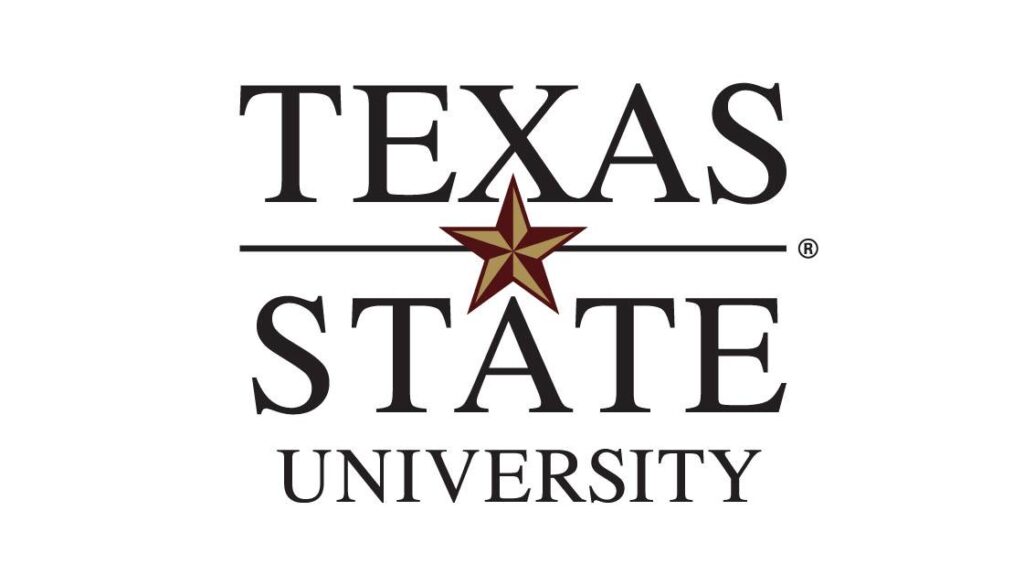Acting Guidelines
Prescreen Application Deadline: December 1, 2024, at 11:59 PM CST.
Additional audition information can be found here.
General Information and Tips
- Each piece should be filmed/uploaded as a separate piece of media. No continuous videos.
- Students are encouraged to use standard technology/recording devices available to them (i.e. smartphones, tablets, etc.)
- Solid-colored walls are ideal, but any background that does not steal the focus from your performance is desired.
- Take care that your space allows for adequate lighting. Having a lamp or window directly behind you will cast a shadow over your face. Keep the lighting source behind your recording device or to the side of you so that your face is lit.
- Before filming, do a trial run to test both your audio & visual presentation. Watch your video back to ensure everything looks AND sounds okay.
- Ensure the camera portion of your device is at eye level (see example). You can use a tripod built for a smartphone or tablet. If you do not have a tripod, consider using a stack of books on a desk or box. Filming in “landscape” (horizontally) is recommended.
Time Guidelines for All Performance Videos
- All monologue and wild card videos should be 60-90 seconds each.
Prescreen Application
- Introduction/Slate (Required)
There should not be a separate introduction or “slate” video. Instead, “slates” are to appear at the beginning of each piece and are included as part of the time allotment.
State your name. If you would like to include your pronouns, state them as well. Please speak loudly (project your voice) and clearly (articulate) directly at the camera.
This is an opportunity for the auditors to get a sense of your personality and to learn the pronunciation of your name.
Label each video file with the piece you are performing, the show or playwright, and your first & last name.
Title of Play – Playwright – Your First & Last Name
Examples:
Much Ado About Nothing – William Shakespeare – Luke Skywalker
Framing For Slates and Monologues
Camera framing is simply the placement and position of the actor in the shot. We recommend a waist-up frame so we can see your face and hear you clearly.
- Monologues (Required)
Two contemporary monologues (written after 1900).
Tips
It is recommended to choose monologues that are age-appropriate (generally within 5-10 years of your actual age) and that feel authentic to your culture, background, and lived experience.
Active monologues are often better for auditions; an active monologue takes place in real time and focuses on what you want and puts you in direct communication with an imaginary scene partner. This is often more successful in an audition situation than pieces that are a story or remembrance. Additionally, it can be helpful to avoid monologues that rely on extreme emotions as it can be hard to believably justify those responses in a short piece.
If possible, for this audition, we request that you do not perform pieces by: Gabriel Davis, Don Zolidis, Kellie Powell, or Wade Bradford, and that you avoid any monologue that is not a piece of a larger whole, such as a play, a screenplay, a novel, or a TV script. Beyond that, we encourage you to make bold choices and bring what speaks to you the most.
Wildcard (Required)
- Think about the wild card section as an opportunity to show your personality or share something about you. This media can be ANYTHING you want – a special skill, an interesting story about yourself, a passion speech, an instrument you play, etc. “What do you want us to know about you?” Below is a list of ideas that have been successful in the past:
- Singing a pop song
- Singing or playing an original composition/song/poem or choreographed dance.
- Performing your own Saturday Night Live-styled skit where you create a comedic character
- Sharing a hobby or activity that means something to you
- Performing in a language other than English in which you are fluent
- Playing an instrument
- Making a “how-to” video on something you are good at, baking, calligraphy, gymnastics.
- If you are a dancer and want to show us a different style you excel in: Tap, Hip Hop, Lyrical, Ballet, etc.
Personal Introduction (Required)
- Our written introduction gives us the opportunity to get to know you, but it also is an opportunity to see if you take direction and actually answer the questions asked (you’d be surprised how many people don’t.) So much of what we do as artists is in the details, and the care with which you approach the requirements of this essay is essential to your success. We put a great deal of weight on the written introduction. In fact, it is the first thing we look at in an applicant’s profile. Please adhere to the requirements for the essay and answer all the questions listed below:
- Requirements for Essay
- Your name must appear in the upper right corner of every page
- Line spacing must be double-spaced
- Margins need to be the “normal” setting of one inch (1”) at the top, bottom, left, and right
- Indent the first line of each paragraph
- All pages must be numbered
- Essay length is 1,000 words or less
- Font: Times New Roman, size 14
- File submitted must be a PDF
- Questions to Answer
- What do you feel is special and unique about you?
- What do you feel your strengths and weaknesses are as a person and as an artist?
- What are your other interests and hobbies not related to theatre?
- What are your artistic interests outside of performing on stage? (Writing, directing, composing music, plays, film, TV, etc.)
- Helpful Hints:
- Be honest.
- Don’t feel you need to impress us or, conversely, be overly humble.
- Don’t waste time trying to figure out what you think we want to hear.
- We are looking for 14 to 16 unique artists for the Acting BFA Program who know themselves and will benefit the most from what our program has to offer.
Additional Documentation (Required)
- You are required to provide two letters of recommendation. Your recommenders may send this material directly to the Department of Theatre and Dance at the following email address: theatreletters@txstate.edu. Your first and last name must be included in the subject line of the email.
Information about Callbacks
Callback or rejection notifications will be made before December 31, 2024.
You are required to apply to the university in addition to the program you are interested in (Musical Theatre or Acting). Both applications should be submitted at the same time. Before you can schedule and attend a callback your university application must be submitted.
When applying to the university please declare your major as Pre-Theatre. This should be your declared major if applying to any of the undergraduate degree programs within the Department of Theatre and Dance. A specific designation of Acting or Musical Theatre is automatically applied after offers are made and accepted.
Callback Dates:
- Virtual: January 18, 2025
- On-Campus: January 25 & February 15, 2025
- Unifieds in Chicago: February 2, 3, 4, & 5, 2025
⚠ IMPORTANT! ⚠
If you already saved or submitted an application, please LOGIN to continue.


SUPPORT
If you have any questions about the HeartOut platform and the application process, contact our Tech Support Team at HeartOut.io/support